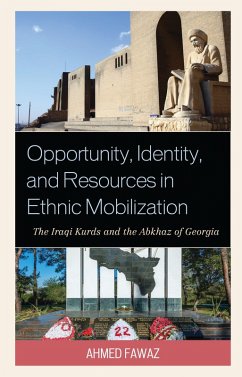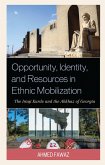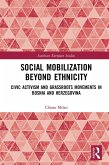Recent unrest and political upheaval in Iraq and Georgia have brought attention to the place of minority populations in both countries. Using Iraqi Kurds and the Abkhaz of Georgia as case studies, this book addresses how ethnic identities become politicized across boundaries by states and political entrepreneurs, leading to mobilization of ethnic populations. This book bridges Middle Eastern studies with Post-Soviet studies, exploring the commonalities of cases in these regions to draw out patterns in cases of ethnic mobilization. It also provides a theoretical framework to examine the process of ethnic mobilization. Building on this theoretical framework, the book provides a detailed empirical analysis of the case studies of the Kurds in Iraq and the Abkhaz in Georgia. Analysis of both cases shows several common variables in cases of ethnic mobilization, including ethnic entrepreneurs, political opportunity structure, ethnic identity politicization, and resource mobilization. These variables form the environment in which ethnic mobilization occurs, motivated by such factors as state policy towards ethnic groups and external intervention to support ethnic groups.
Bitte wählen Sie Ihr Anliegen aus.
Rechnungen
Retourenschein anfordern
Bestellstatus
Storno









